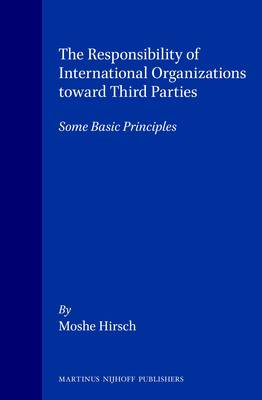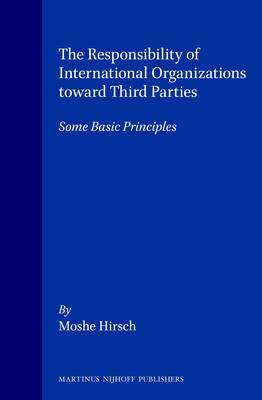
- Afhalen na 1 uur in een winkel met voorraad
- Gratis thuislevering in België vanaf € 30
- Ruim aanbod met 7 miljoen producten
- Afhalen na 1 uur in een winkel met voorraad
- Gratis thuislevering in België vanaf € 30
- Ruim aanbod met 7 miljoen producten
Zoeken
The Responsibility of International Organizations Toward Third Parties: Some Basic Principles
Some Basic Principles
Moshe Hirsch
€ 99,95
+ 199 punten
Omschrijving
One of the far-reaching changes in the past century is the rapid growth of international organizations. International organizations are instruments for institutionalized co-operation among states; however, they also generate growing risks to other actors in the international system. The increased activity of international organizations may lead, naturally, to an infringement of the rights of others and the infliction of damage upon them. In such cases the question arises of which legal principles apply to the relations between the wrongdoer organization and the victims of its activity. This is the realm of responsibility of international organizations.
Specificaties
Betrokkenen
- Auteur(s):
- Uitgeverij:
Inhoud
- Aantal bladzijden:
- 234
- Taal:
- Engels
- Reeks:
- Reeksnummer:
- nr. 20
Eigenschappen
- Productcode (EAN):
- 9780792332862
- Verschijningsdatum:
- 14/09/1995
- Uitvoering:
- Hardcover
- Formaat:
- Genaaid
- Afmetingen:
- 155 mm x 235 mm
- Gewicht:
- 547 g

Alleen bij Standaard Boekhandel
+ 199 punten op je klantenkaart van Standaard Boekhandel
Beoordelingen
We publiceren alleen reviews die voldoen aan de voorwaarden voor reviews. Bekijk onze voorwaarden voor reviews.











